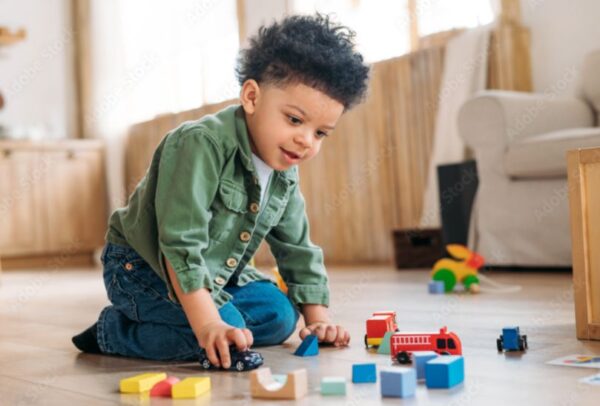Lifestyle
20 house rules for children and why they are important

Who doesn’t want their kids to be well-mannered and responsible?
But very few people know that this can only happen when children start following some simple house rules.
These rules help kids understand boundaries, develop discipline, and respect others.
This is more than just a list of do’s and don’ts, house rules build values that shape them into kind and responsible people.
When followed consistently, these rules create a home environment that is filled with harmony, respect, and cooperation.
Here are 20 simple house rules that every child should follow and why they matter
1. Always respect others’ boundaries
Personal space and respect for others’ feelings are necessary in building strong relationships. Understanding when to give someone privacy, knocking before entering a room, and avoiding interrupting conversations teach the importance of respect and consideration.
2. Greet people with warmth and regards
A warm greeting sets a positive tone for interactions. Saying “good morning,” “hello,” or “thank you” creates good manners and creates an inviting and friendly atmosphere. This habit helps children develop social skills and shows appreciation for others.
3. Keep shared spaces tidy
A clean and organised home benefits everyone. Encouraging children to clean up after playing, keeping the dining table clutter-free, and tidying up common areas teach responsibility and consideration for others in the household.
4. Be responsible for your stuff
Taking care of personal belongings like toys, books, and clothes teaches accountability. When children learn to value their possessions, they become more mindful of their things and develop good habits of organisation and care.
5. Help wherever you can
Lending a helping hand, whether by carrying groceries, setting the dinner table, or assisting a sibling, creates a sense of teamwork and cooperation. Helping out at home also builds a habit of kindness and gratitude for the efforts of others.
6. Don’t hide mistakes
Making mistakes is natural, but honesty in admitting them is key. Encouraging children to take responsibility for their actions, whether it’s spilling a drink or breaking something, builds integrity and trust. Mistakes offer opportunities to learn and improve.
7. No yelling (parents should follow, too!)
A home should be a peaceful space where communication is respectful. Teaching children to express their emotions calmly rather than shouting helps them develop patience, emotional control, and healthy ways to handle conflicts.
8. Let words speak, not hands
Physical aggression, like hitting or pushing, is not acceptable behavior. Encouraging children to talk about their feelings instead of resorting to physical reactions helps them develop emotional intelligence and conflict resolution skills.
9. Keep things where they were found
Misplacing things can cause unnecessary frustration. Teaching children to return items like books, toys, or remote controls to their original place instills a sense of order and responsibility, making life easier for everyone.
10. Borrow only after asking the owner
Respecting ownership teaches children to be mindful of others’ belongings. Asking for permission before using something that doesn’t belong to them builds trust and prevents misunderstandings.
11. Phones should be used only during “me time”
Setting boundaries on screen time ensures a balance between digital activities and real-life interactions. Limiting phone use during family time, meals, and study hours promotes healthier relationships and better concentration.
12. Every action has consequences
Understanding that choices have outcomes helps children make better decisions. Whether positive or negative, actions lead to consequences, teaching responsibility and encouraging thoughtful decision-making.
13. Be thankful for everything
Gratitude builds a positive mindset and helps children appreciate what they have instead of always wanting more. Saying “thank you” and acknowledging small joys create a sense of contentment and humility.
14. Apologise when wrong
Admitting mistakes and saying “I’m sorry” when necessary builds accountability and strengthens relationships. A genuine apology teaches humility and helps healthily resolve conflicts.
15. Be kind to animals and nature
Treating animals and the environment with care nurtures empathy and responsibility. Feeding a pet, watering plants, or avoiding littering are small actions that develop respect for all living things.
16. Wash hands before eating and after using the bathroom
Good hygiene is essential for staying healthy. Washing hands prevents the spread of germs and reinforces the importance of cleanliness in daily routines.
17. Family time is non-negotiable
Spending quality time together builds strong family bonds. Whether it’s eating dinner together, playing a board game, or sharing stories, these moments create lasting memories and strengthen relationships.
18. No lying: Even white lies
Honesty builds trust. When children learn to be truthful, even in small matters, they develop strong moral values and integrity, which will benefit them in all areas of life.
19. Listen when someone is speaking
Paying attention when others talk teaches patience and respect. Active listening helps children develop communication skills and shows that they value others’ thoughts and feelings.










